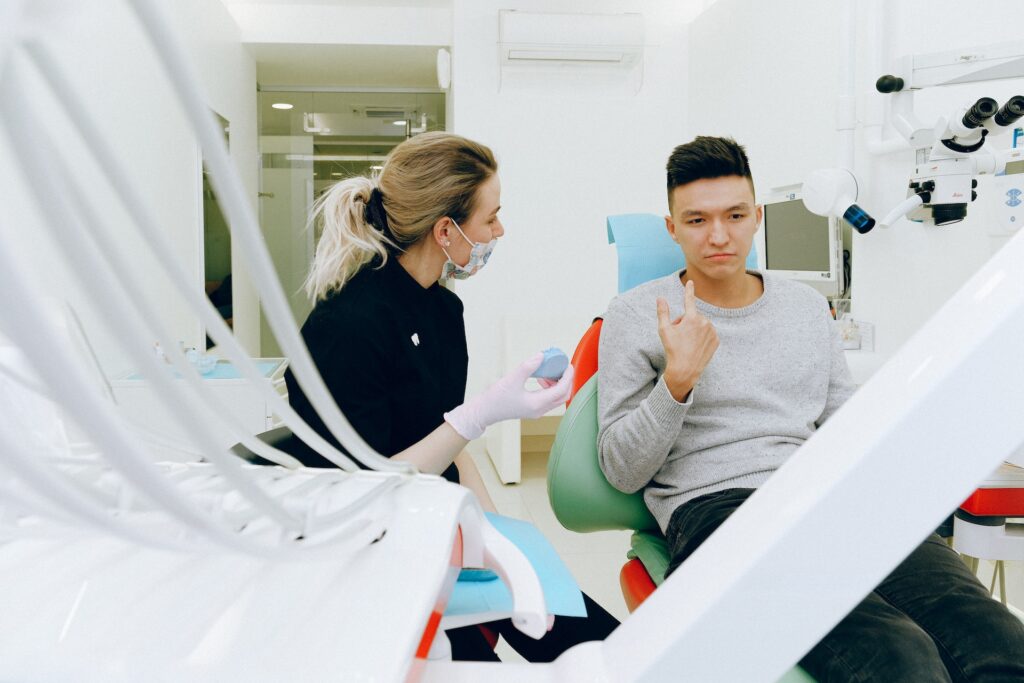Tips for Improving Your Oral Health
Did you know that there are many things you can do to improve your oral health? Some are surprising!
Brushing three times a day and regularly flossing will help prevent cavities, gum disease and bad breath. Eating a balanced diet full of fruits, vegetables, whole grains and lean proteins will also promote oral health.
1. Brush Daily
We’ve all heard the advice that brushing your teeth at least twice a day is the key to keeping your smile healthy. However, the frequency of brushing matters less than how you do it and when you do it.
During the night and throughout the day, our mouths encounter bacteria and food particles. Our bodies’ natural defenses and good oral hygiene keep these bacteria at bay, but if we don’t brush often enough or properly, the bacteria can build up to dangerous levels and lead to tooth decay, gum disease and more.
Brushing your teeth daily also helps prevent bad breath, which is caused by volatile sulfur compounds released by anaerobic bacteria that live on the surface of the tongue. By removing these bacteria and the food they leave behind, brushing can give your breath a fresher, healthier glow.

2. Floss Daily
Flossing is often an overlooked part of oral hygiene. People who brush regularly may not floss as frequently as they should, and 20 percent of Americans never floss at all.
When food gets stuck between your teeth, it begins to rot and can cause bad breath. This can also lead to cavities and gum disease.
To avoid these problems, it’s best to floss every day. It takes only a few minutes to do and can be done in the morning or at night.
Flossing can help improve your oral health by removing the buildup of plaque and bacteria. It can also reduce your risk of gum diseases like gingivitis. Studies have shown that those who regularly floss have a lower risk of heart disease as well. The link is unclear, but researchers believe it’s because of the reduced inflammation that results from good dental hygiene. Adding this simple habit to your daily routine can have many benefits.
3. See Your Dentist Regularly
The most obvious benefit of visiting your dentist regularly is avoiding cavities and gum disease. But there are a number of other health advantages too.
For instance, a dental exam can help detect cancer of the mouth and head and neck. Dentists will check for red or white patches of tissue, any lumps, and other abnormalities that could indicate a serious medical condition.
Regular visits to the dentist will also catch oral health problems early and prevent them from escalating into bigger ones. They can also give you tips on how to avoid habits that sabotage your oral health, such as smoking and consuming sugary drinks, and recommend medications that can help with symptoms like dry mouth or osteoporosis.
Many people will admit that they don’t enjoy going to the dentist but a good oral health routine is essential for overall wellness. By practicing a few simple daily habits, you can greatly improve your oral and overall health.

4. Change Your Diet
If you want to improve your oral health, you need to change your diet. The foods you eat determine what types of bacteria are in your mouth. Eating healthy, nutrient rich foods can help you avoid tooth decay and gum disease. Avoiding sugary or starchy foods can also help.
Eating sweets, carbohydrates and acidic foods as part of a meal instead of as snacks helps reduce damage to teeth because the body produces more saliva during meals to wash away food particles and neutralize acids. A diet rich in calcium, phosphorus, magnesium, vitamin C and vitamins D, E and K can help protect your teeth, bones and gums. Eat fruits and vegetables, lean proteins (fish, poultry, nuts, tofu) and whole grains. Crunchy foods such as apples, celery and carrots can help stimulate saliva production, clean the teeth and massage the gums to increase circulation.










































Discussion about this post